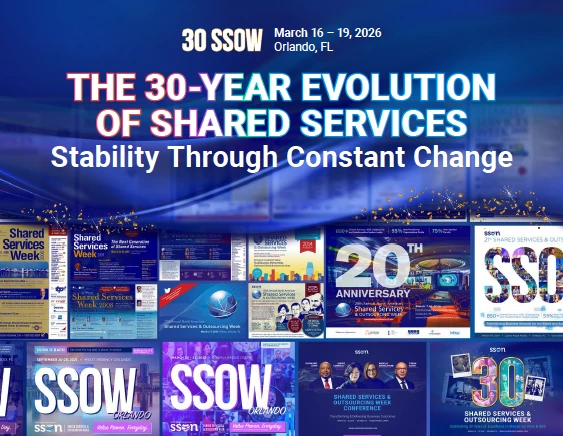How Egypt Became a Global Business Process Outsourcing Hub
Add bookmark
In recent years Egypt has become a rapidly growing economy and labor market with a growing focus on the IT services and outsourcing industries. Ricardo Langwieder, the Regional Lead for the Middle East and Africa at Alorica, is no stranger to the growth of Egypt’s economy and workforce. For the past 20 years, Ricardo has gained international corporate and entrepreneurial experiences while working in Europe, South America, the US, and Asia. He has worked in the MENA region for nearly a decade and is familiar with the strategies Egypt has deployed to make itself a global outsourcing hub.
In order to delve deeper into Ricardo’s understanding of business process outsourcing (BPO) in Egypt, SSON Digital invited him to join the SSONext podcast with Jordan Mullins, Head of Editorial at SSON, to discuss what makes Egypt such a competitive location for outsourcing, how the country has upskilled its young talent and much more.
Becoming a Global Outsourcing Hub
Ricardo has a long history with Egypt. He temporarily lived in the country in the 80s and set up a BPO center in Egypt in 2008. When asked what has changed the most from the 80s to today Ricardo said, “Technology has really changed Egypt. In the 1980’s I would have never dreamed of coming back to Egypt to work in the BPO industry.”
In Ricardo’s twenty years working in this space, he has learned that a prime outsourcing location has three things:
- Talent
- Capabilities
- Cost-effectiveness
These are three areas that Egypt has taken steps to excel in.
According to Ricardo, the countries that have become synonymous with outsourcing, such as India and the Philippines are becoming oversaturated, and many global businesses are looking to mitigate risk by spreading their outsourcing efforts across the world. Amidst this growing trend, Egypt has emerged as a new location to grow in.
“If you look at growth in terms of people, Egypt currently has, I think, 100,000 people working in the BPO industry, and I predict that number to double in the next couple of years,” Ricardo said. “The dynamic in eastern Europe, the costs in eastern Europe and Asian countries is making Egypt rather competitive right now.”
Egypt’s Talent Advantage
When Alorica began its efforts to grow in the MENA region, one thing that was important was being able to continually scale up in the region, which meant finding a location with educated talent and the technical capabilities to support that growth.
Alorica immediately identified Egypt as the country to set up in large part due to Egypt’s talent pool. “Not only is the talent base scalable, but it is affordable and also willing to grow in terms of capability and skills,” Ricardo said.
Egypt has more than 600,000 students graduating from universities annually, with about 30-40% being multilingual. Ricardo added that the multilingual population isn’t just fluent in English and Arabic, but there are large pockets of French, German, and Spanish-speaking young workers in Egypt as well.
With so many languages represented in Egypt, the country is one of few multilingual outsourcing hubs in the world. Meaning that global businesses can outsource work from several parts of the world all to one business center.
A Strong Partner for IT Services
The BPO industry has several segments of outsourcing, but perhaps the largest is IT outsourcing, which is the area Egypt specializes in.
Some of the most recognizable technology companies in the world, such as Dell and IBM, run centers out of Egypt not only because of the talented workforce, but also because of the support of agencies like the Information Technology Industry Development Agency (ITIDA).
“ITIDA has been successful for several years now,” Ricardo said. “They provide not the structure businesses need to adjust to a new setting as well as an environment that allows them to scale quickly.”
The Egyptian government realized early on the potential of becoming a BPO hub and has invested heavily in supporting ITIDAs mission. This has allowed ITIDA to continue innovating to bring new businesses into the country and continue supporting the ones already there.
Prefer audio? You’ll find a lot more detail in this full discussion between Jordan Mullins and Ricardo Langwieder on Spotify and Apple Music.





















